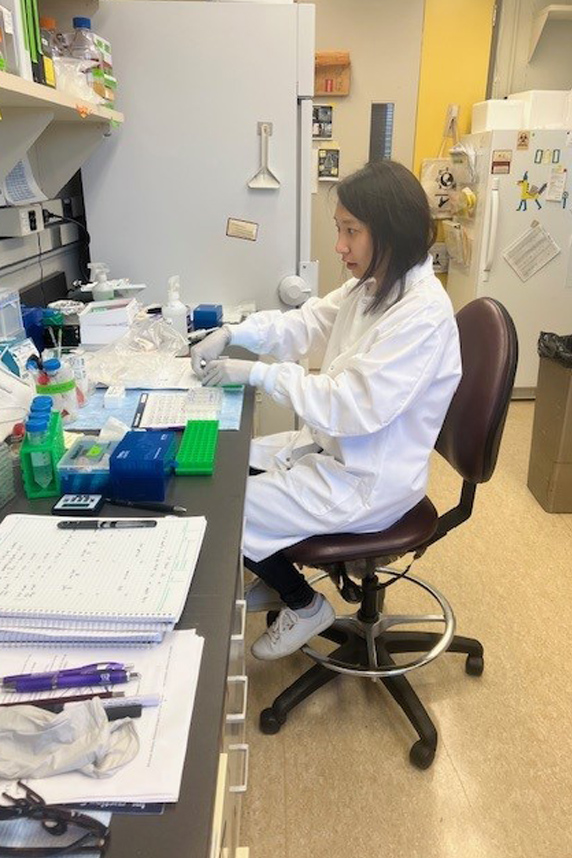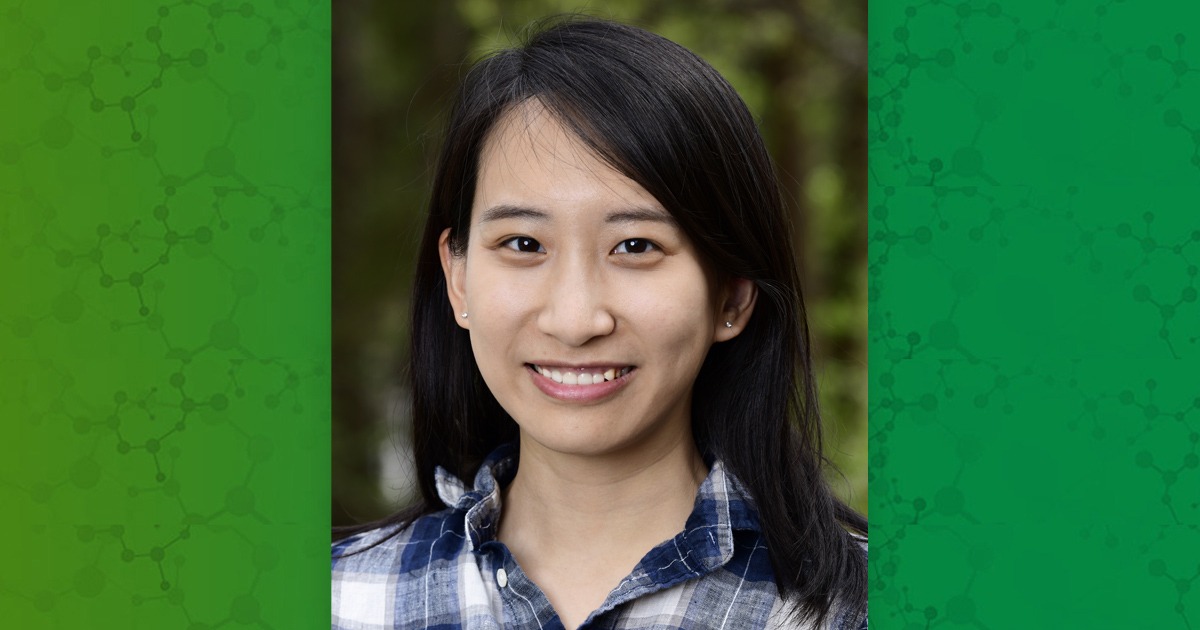Yu-Ying Chen., Ph.D., won third place at the June National Institutes of Health (NIH) Three-Minute Communication Challenge. Chen represented NIEHS after taking top honors in the institute’s annual competition, where predoctoral and postdoctoral trainees sharpen the skills needed to communicate their work to nonspecialist audiences.
Chen is a third-year postdoctoral fellow in the Reproductive Developmental Biology Group led by Humphrey Yao, Ph.D. The group works to determine whether the process that determines an embryo’s biological sex may be susceptible to environmental exposures, such as endocrine disruptors or maternal stress.
Environmental Factor recently spoke with Chen to learn more about how she communicates her reproductive health research, mentors who have inspired her, and what she is most looking forward to in the future.
EF: How did your scientific journey begin?
Chen: When I was a kid, I wanted to be a pastry chef. While in high school, I had this amazing opportunity to work as a summer intern in a research lab with a professor who studied stomach cancer. My project was to look at samples of patient DNA across the genome and to look at how the different correlation patterns can determine higher rates of stomach cancer. This was a very cool experience and it got me interested in biomedical science.
EF: What other pivotal experiences shaped your career path?
Chen: During undergrad, I worked at a volunteer organization on a campaign that focused on sexual rights and reproductive challenges women face. This got me interested in sex- and gender-related studies in science and humanities. The more I read, the more I became fascinated with the idea of sex determination and reproductive organ development. That experience led me to enroll in a reproductive science program.
EF: What did you learn from the NIH-wide Communication Challenge?
Chen: Having to explain my research in just three minutes, in an interesting and approachable way, definitely was a challenge. The NIH-wide contest was via Zoom, which was more difficult than presenting in person in front of an audience at NIEHS. I was really amazed at how well everyone did.

EF: Which mentors have played an important role in your career so far?
Chen: I really appreciate Dr. Yao’s passion in mentorship and letting us explore and identify our own scientific interests. He focuses a lot on science communication skills and encourages us to share our research with people whose educational backgrounds differ from our own.
Teresa Woodruff, Ph.D., who was my graduate school advisor at Northwestern University, also has greatly impacted me professionally. She is passionate about reproductive health research, education, community outreach, and policymaking. She showed me how much a woman scientist can achieve.
EF: What are you most looking forward to in the future?
Chen: I am looking forward to running a research program to study germ cell quality in the near future, and I am excited about incorporating the knowledge in epigenetic regulation I gained during my postdoctoral work.
(Sam Tyler is a technical writer-editor in the NIEHS Office of Communications and Public Liaison.)
Source link
factor.niehs.nih.gov

